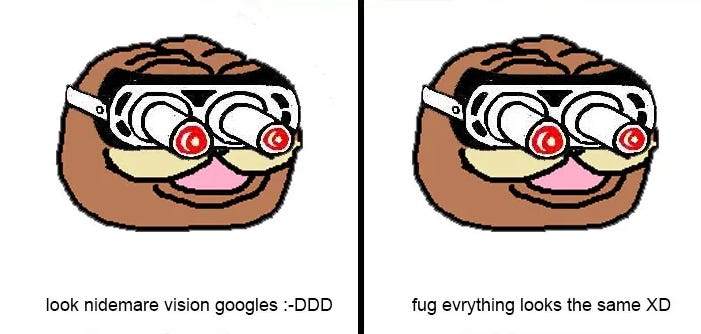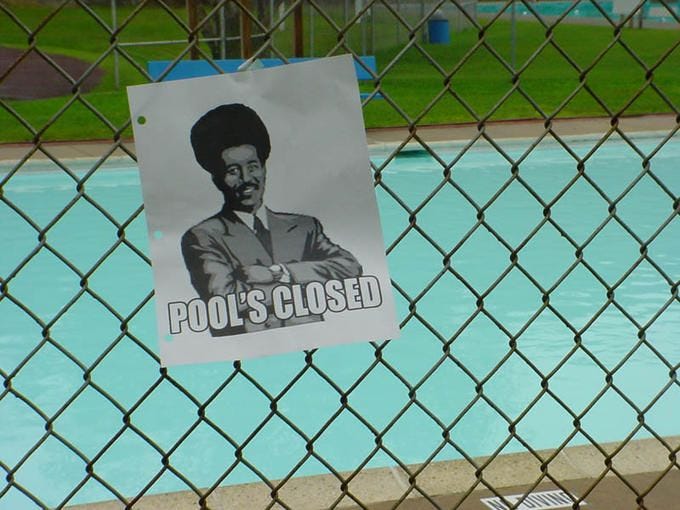The genre that we know today as punk rock first took form in the 1970s as an underground scene loosely defined by its veneration for independence and authenticity in the form of high-energy music paired with lyrics centred around themes of anti-establishment. It came about largely as a reaction against mainstream rock music, but it very quickly split into subgenres and became as commercialized as the radio-friendly rock that its fans once rejected. The following generation grew up in a world where punk was no longer edgy or taboo, in the minds of some it had even passed into the dreaded realm of lame. “Punk is dead” had become a common sentiment and while the music itself continued to evolve it was no longer on the forefront of counter-culture, punk rock was well into the same trajectory that scenes before it had gone through again and again. Fast forward to today and telling someone my age that you’re seriously into the punk scene will often be met with eye rolls and snickers, they’ll even raise a fist ironically. It’s a mean reality but is it so different from the conditions that gave rise to the punk movement in the first place?
In 2003, an American teenager that went by the name ‘moot’ created an imageboard called 4chan modelled after the Futaba Channel, a Japanese imageboard popular among otakus. Unlike other forums and messageboards, there was no need to sign up, posts were not tied to any user accounts and personal identities were obfuscated. Outside of the admin and moderators there was no established hierarchy, everyone was Anonymous and every post was given the same weight. 4chan naturally exploded in popularity over the coming years and came to be known across the web as a hub of pure unrestrained creativity, it attracted everyone from artists, activists and whistleblowers to all manner of degenerates while sub-communities rapidly grew within its many boards. The site was open to anyone, but its dedicated userbase maintained a fierce exclusivity – what we’d call gatekeeping today – against new users who were not familiar with the established culture. This strict self-regulation kept 4chan at the head of 2000s online irreverence and took it further than sites like Something Awful whose users had already begun migrating to other emerging spaces. It wasn’t long before 4chan had found itself under scrutiny from the mainstream, and for most people the horror stories they read online or in the news drove them away from the site. This only worked in 4chan’s favour as its reputation filtered out the meek and the unworthy: the so called normies.
It began as an unofficial counter-part to an existing imageboard, so it was only natural that imitators would model themselves after 4chan, which had now established itself as the largest English-language imageboard in terms of user traffic. These alternative chans – known as altchans – were usually formed to allow users to discuss niche and taboo topics that were not allowed on their parent site and often presented themselves as free speech respecting safe havens far removed from 4chan’s increasing moderation. Another common reason users migrated to these altchans was due to concerns over 4chan selling user metadata after its acquisition by Hiroyuki Nishimura, founder of 2channel (the progenitor to 2chan, ie. the Futaba Channel). Arguably the most infamous of these altchans was 8chan, which saw a sharp rise in popularity after all discussion of Gamergate was banned from 4chan. From 2014 through to the 2016 U.S. presidential election cycle and onwards, 4chan found itself frequently embroiled in online controversies and the moderators had to deal with a rapid influx of new users who wanted in on the fun.
There was a popular word used for those who didn’t take the time to learn 4chan’s history and culture and did not show a sufficient amount of deference towards the veteran users, this word ends with a 3-letter slur and I try to keep things PG on here so use your imagination, but it began with the word summer. The idea being that when school’s out the kids have more time to fool around on their computers, leading them to stumble upon places like 4chan where their naïveté gave away their age to the older and jaded regulars. As you could probably tell this term was coined before every middle schooler had a smartphone in their pockets, but the word was useful enough to describe a certain type of person, one who has no respect for seniority and forum etiquette. To the uninitiated, etiquette and 4chan may seem incompatible but like any community there was a learned dialect that signalled an individual’s familiarity with the existing culture. “Lurk moar” was the well-recited command passed down to new users; don’t even think about posting until you’ll fit in, don’t ask for sources and don’t expect anyone on the site to act as your personal army. The most important of these rules was to keep 4chan to yourself because if someone was truly fit to post there the site would find them on its own.
By now social media had already supplanted the traditional web forum as the dominant form of discourse over the internet and where these forums were insular and homogeneous in their communities, the world of social media was an open square where (supposedly) all voices were equal and site-wide moderation was entirely in the hands of the unknowable corporation that owned the service itself. It meant that early social medias – Facebook, Twitter, Tumblr – and the earliest social apps – Instagram, Snapchat – that matured with the smartphone were the frontier for a new generation, even websites that existed outside the realm of social media – YouTube, Reddit – eventually gave in to the format, it’s only a matter of time before your favourite app implements reels. 4chan for all its talk of being the Wild West of the internet still had a list of rules and a team of moderators to enforce them, this new school of social media sites didn’t even require their users to fully read the ToS before they could start posting.
It’s hard to imagine places like Twitter as it exists today being egalitarian and relaxed with moderation, but ask any veteran of these sites and they’ll bemoan the loss of freedom that was generally the norm online in the 2000s. As such the users who had grown up with these services had a more casual relationship with the web, rules were not to be taken too seriously and while sub-communities did form the immaterial nature of the internet was more apparent to these users than it was to their older counter-parts who were sticklers for correct behaviour. Again, it may seem oxymoronic to describe 4chan users as uptight self-appointed hall monitors but the need to uphold their reputation within the wider web necessitated their older users being hard on the freshmen if they stepped out of line or missed a reference. Gatekeeping, self-regulation, keeping your community in check, whatever you call it the result of this practice inevitably lead to a growing frustration within the newer and younger users on 4chan.
A growing resentment towards the old guard and the popularity of these altchans lead to entire communities that spun off of 4chan that shed its symbols which were deemed obsolete. Soyjak.party launched in 2020 from 4chan’s /qa/ board – short for Question & Answer, a sort of meta board to discuss the site itself – as a place to share and spam mutations of the popular soyjak, a meme that was well into the ironic phase of its lifecycle. The average age of the party’s userbase is younger than that of 4chan and a sizeable portion of the regulars are teenagers. Anime, Pepe the frog, symbols that were dear to 4chan are strongly rejected and the pride of the chan veteran means nothing here. Over these last few years the imageboard has grown in popularity as its users pump out variations of the soyjak at a near industrial rate, many of which have found their way onto other websites and became entirely new meme formats. Original content (OC) was once the core export of 4chan, but the sustained growth of newcomers, an inability to preserve its creative talent in the face of a major cultural shift and the growing bitterness towards anyone looking to take part in the fun from the outside brought the meme factory to a grinding halt. In its place these altchans came to embody the spirit of /b/ and other classic boards. Add to that the murkiness of social media and the tendency for ironic content to cross-pollinate with other sites like meme subreddits and the Twitter art space and 4chan had quickly lost its place on the pedestal.
The bar for entry onto the web has been lowered for most of the world and the interconnected nature of social media has altered the paradigm for online culture such that it matters less where an individual hangs out and more who they’re hanging out with. Twitter and Instagram don’t have boards like a traditional forum, but they foster unique sub-communities with their own hierarchies, made up of people who have prior experience with other online spaces. These older users tend to clash with the younger ones because any semblance of an online etiquette is entirely disregarded by the summer child. They can hardly be blamed however, why should they have to respect the strict posting requirements of those who just so happened to be born earlier? We’re all online to have a good time, presumably, and culture has always been in the hands of the youth. 4chan, and more specifically 4channers had to face the music at some point and accept that the rest of the internet was ready to move on, with or without them.
By the late 1970s, another scene had formed in New York City’s underground called no wave. Punk rock had grown too big for its boots and new artists emerged with experimental sounds that rejected the mainstream appeal of rock and new wave. No wave took inspiration from a wide gamut of genres, ranging from noise and garage rock, funk, disco and classic punk, but it was best defined by what it wasn’t and that it stood against conventions that were deemed outdated by the rapid shift in culture at the time. Punk stuck around of course, but it had lost its edge and even no wave’s time in the sun would come to pass. After a certain point, new and old become one and the same and the summer never ends.



